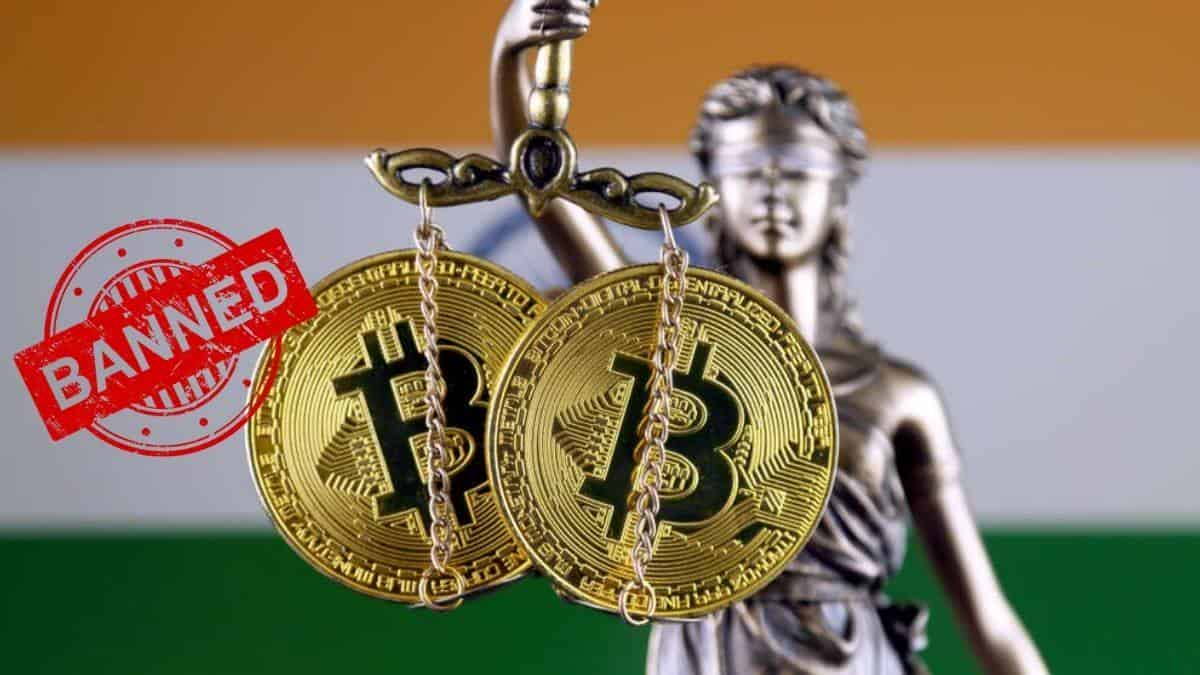Cryptocurrency Ban In India: Government of India intends to bring in a bill to regulate Cryptocurrency, Ban private players

The first steps toward cryptocurrency
On November 18, the administration gave the first signal that it was looking to correct the situation with cryptocurrency safeguards.
Prime Minister Narendra Modi remarked at the Sydney Dialogue, a summit on emerging, critical, and cyber technologies, “Consider cryptocurrency, also known as Bitcoin. It is critical that all democratic nations collaborate on this to ensure that it does not end up in the wrong hands, where it might harm our kids.”
PM Modi had spoken with key officials about cryptocurrency just five days before.
According to a source, the popularity of cryptocurrency, despite its volatility and risks, has shown that digital money can be a source of revenue for the government. Earnings may also result in direct taxation and GST levied on services provided by digital currency providers. It has the potential to create jobs as well.
Do the RBI’s reservations hold?
Since 2017, the RBI has expressed major worries about cryptocurrency. In July 2017, then-RBI governor Urijit Patel told a parliamentary hearing that the central bank was keeping a careful eye on cryptocurrency transactions.
Members of the panel, including BJP MP Nishikant Dubey and BJD’s Bhartrihari Mahtab, had previously stated that the surge in the use of virtual currencies is concerning because it is impossible to determine the source of funds. Patel informed the members that the RBI had constituted an inter-disciplinary committee to investigate the legality of cryptocurrencies.
An RBI circular issued on April 6, 2018, barred banks and entities regulated by it from providing virtual currency services. The Supreme Court overturned the circular on March 4, 2021.
RBI Governor Shaktikanta Das recently acknowledged that the central bank had serious concerns about cryptocurrencies, which had been communicated to the government over time.
Despite the lofty claims made by BACC and CII last Tuesday, Shaktikanta Das, speaking at an SBI event, effectively refuted all of the cryptocurrency stakeholders’ claims and demands.
“I’d want to emphasize that the number of accounts reported is inflated in the sense that around 70-80 percent of the accounts cited are modest accounts of Rs 1,000-2,000, and even Rs 500. So, anecdotally, and we have a lot of input, while credit and incentives are offered for account opening, the amounts range between Rs 500 and Rs 2000 “According to Shaktikanta Das.
The RBI governor agreed that the value of cryptocurrency trading has increased, but “when the central bank says we have severe concerns from the standpoint of macroeconomic and financial stability, then there are serious challenges involved.”
“I have yet to witness serious, well-informed debates in public. At this moment, the RBI, as the central bank entrusted with the responsibility of ensuring financial stability, has stated that there are severe worries, and that deeper issues require far deeper conversations “According to Shaktikanta Das.
SC Garg Committee Recommendations
The new Bill appears to be heavily influenced by the suggestions of the SC Garg Committee, which was constituted by the Department of Economic Affairs, Ministry of Finance.
The committee even advocated banning cryptocurrencies in its report titled “Report of the Committee to Propose Specific Actions to be Taken in Relation to Virtual Currencies.”
The committee has expressed concern over the proliferation of cryptocurrencies, nearly always issued abroad, and a large number of people in India investing in them.
According to the paper, “all of these cryptocurrencies have been produced by non-sovereigns and are thus totally private firms, and there is no underlying intrinsic value of these private cryptocurrencies, as a result of which they lack all of the criteria of a currency.”
The research also stated that these private cryptocurrencies have no set nominal value, implying that they are neither a store of wealth nor a means of exchange. Cryptocurrencies have experienced dramatic price volatility since their beginnings.
Following the report of the SC Garg Committee, there was a perception in the market that the future of cryptocurrencies was sealed, as it stated that private cryptocurrencies should not be permitted. According to the committee, cryptocurrencies cannot serve as a currency since private cryptocurrencies are incompatible with the core functions of money/currency.
As a result, private cryptocurrencies cannot replace fiat currencies, according to the committee.
The group also recommended that the government keep an open mind when it comes to an official digital currency. It advocated that the Department of Economic Affairs form a panel with representatives from the RBI, MeitY, and DFS to examine and design an appropriate model of digital money in India.
If the official digital currency was to be designated as legal money, the committee proposed that the RBI serve as the proper regulator of such digital currency under Section 22 of the RBI Act.
The Bill, which was based on these recommendations and was passed in January of this year, brought back the jitters of April 6, 2018, when the RBI forbade banks from dealing with cryptocurrency.
Crypto gamers flexing their muscles
Indian crypto exchanges and industry groups recently released combined advertising claiming that crypto investments by Indians had surpassed Rs 6 lakh crore and that the number of investors had increased rapidly to more than 10 crores.
Despite the fact that many of these investments are considered to be micro and small, the government is not willing to go after them hard.
Last Monday, the Standing Committee on Finance, chaired by former Minister of State for Finance Jayant Sinha, met with officials from crypto exchanges, block chains, and the Crypto Assets Council (BACC), as well as the CII and ASSOCHAM. The representatives had made a compelling case for restrictions and defined operational ground rules.
While committee members expressed severe concerns and the need for rules, no one advocated for a ban.


